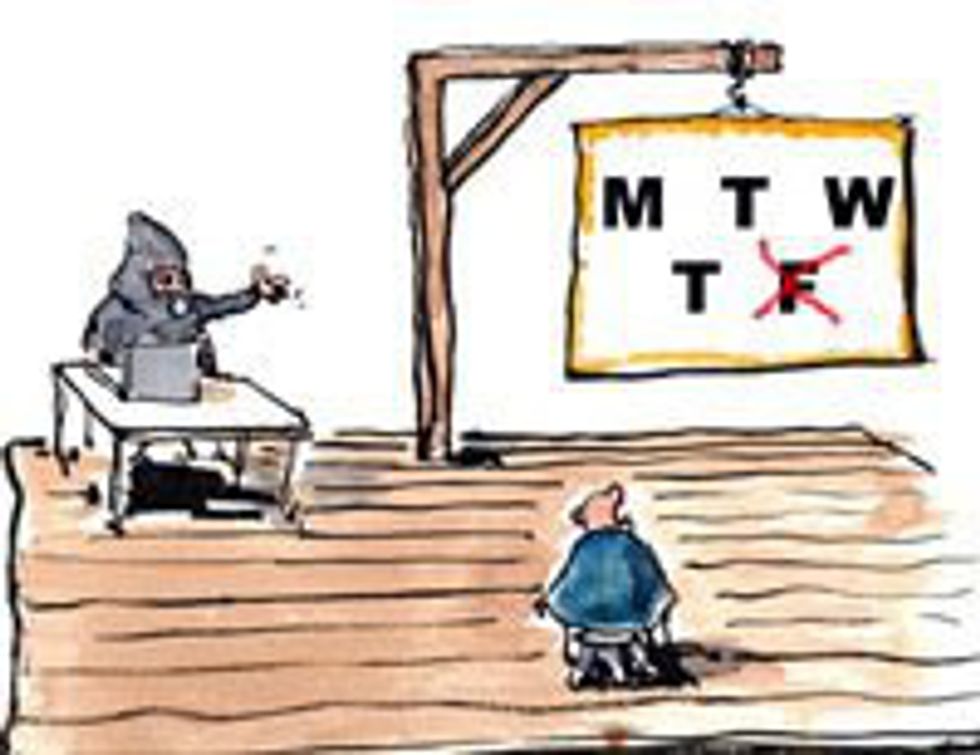The existence of our minds is possibly the most fascinating thing in the universe. Sure, we have magnificent oceans, majestic mountains, and beautiful forests, but none of those things would “exist” without our minds. Can we even accurately study our own mind? While our minds are amazing, they have limits, and nothing demonstrates those limits better than paradoxes. Here are three paradoxes that have challenged our minds through history.
1. Zeno's Turtles
The ancient Greek philosopher Zeno proposed many paradoxes during his life. Perhaps the most interesting is the race between Achilles, a Greek hero in the Trojan War, and a turtle. The tortoise received a head start in the race. Common sense tells us that the war hero Achilles would easily overtake the turtle, but Zeno thought about the situation differently. If the turtle received a 100-meter head start, then Achilles would then need to traverse 100 meters to catch it. During that time, the turtle would have advanced some more distance. Achilles would then need to travel that distance. After Achilles travelled that distance, the turtle would have advanced some more. The idea of the paradox is that the turtle could never be overtaken as Achilles is constantly playing catch up.
The solution to this paradox is realizing the discrepancy between the physical world and the mathematical world. Zeno suggests that the turtle is traversing an infinite number of points that Achilles would then have to travel to catch up. This mathematical model of motion is not how the real world works. There is not an infinite number of points between two distances meaning that as long as Achilles runs faster than the turtle, he will eventually catch up because both he and the turtle are running a finite distance.
2. This Sentence Is False
Most of us have either seen this paradox or some variant of it. Paradoxes like these cannot truly be resolved as they have a contradiction that prevents them from being classified as true or false. If the sentence is true, then its meaning contradicts that fact. If the sentence is false, then its meaning proves it true. These paradoxes are annoying and have the harsh name of “liar paradox.” If a paradox is inherently contradictory by virtue of language, it cannot be resolved. A well-known variant of this paradox is if Pinocchio were to say, “My nose will grow.” If his nose grows, he was telling the truth. However, his nose only grows if he lies, so by telling the truth, his nose should not grow. If his nose does not grow, that means he lied, so his nose will grow? You get caught in a cycle, so Pinocchio's nose would probably retract and grow in a cycle if he were to say, "My nose will grow."
3. The Unexpected Hanging Paradox
A prisoner has been sentenced to death by a judge and is told that he will be hanged one day next week and that the particular day will be a surprise. The prisoner reasons that he cannot be hanged on Saturday because if he is not hanged by Friday, he will know his execution day is Saturday. He then figures that he cannot be hanged on Friday as he has already eliminated Saturday as a possibility, so if he is not hanged on Thursday, Friday will not be a surprise. The prisoner continues this line of logic and celebrates the conclusion that he cannot be hanged at all as he will not be surprised. On Wednesday, the guard executes the prisoner to his surprise. What was wrong with the prisoner’s logic?
There are a few approaches to resolving this problem, but it is best to acknowledge that this paradox is indeed a tricky and difficult one to solve. Perhaps the easiest way to understand this paradox is to use probability. If we consider a 7-day week, the probability that the prisoner would be executed on any given day is 1/7. If Sunday passes without the prisoner being executed, the probability of execution on the remaining days is 1/6. The probability increases to 1/5 the next day, 1/4 the day after, and so forth. Using the probability method, the only day the prisoner cannot be executed is Saturday as the probability is 1/1, meaning he will not be surprised. As long as the probability is not 1, the prisoner will be surprised by the hanging.






















